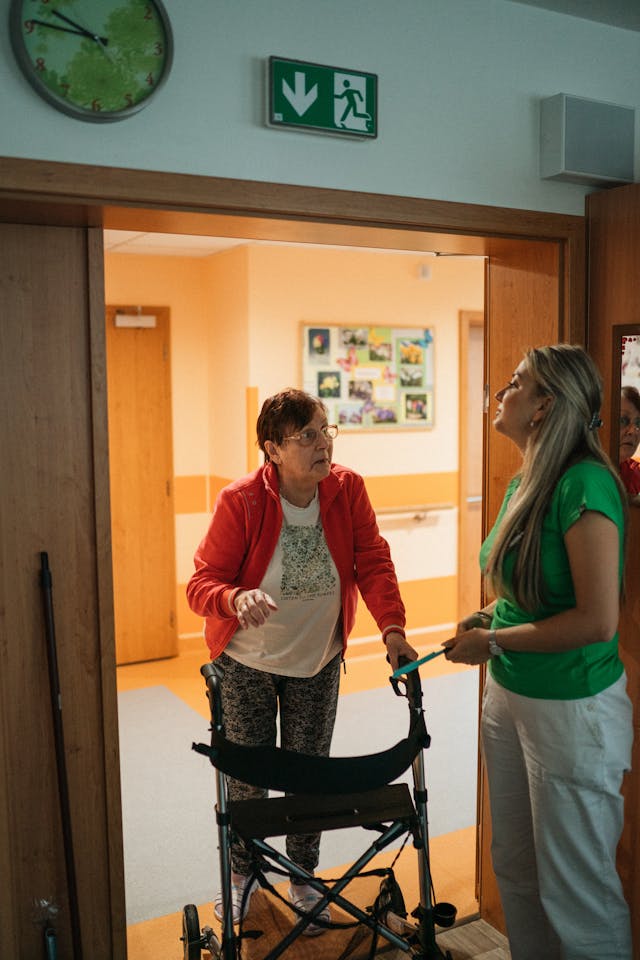
I. Introduction
Caregiver stress, also known as caregiver burnout, is a pervasive issue faced by millions worldwide. This stress stems from the relentless demands and responsibilities of caring for a loved one who is ill, disabled, or elderly. While caregiving is often driven by love and compassion, the toll it takes on caregivers’ physical, emotional, and mental health cannot be overlooked. In this comprehensive guide, we delve into the intricate facets of caregiver stress, its impact, and effective strategies for managing it.
II. Understanding Caregiver Stress
Caregiver stress encompasses a range of emotions and experiences, including anxiety, depression, fatigue, guilt, and resentment. The chronic nature of caregiving, coupled with the unpredictability of the care recipient’s condition, exacerbates stress levels over time. Research indicates that caregivers are at a heightened risk of developing health issues such as hypertension, weakened immune function, and insomnia.
III. The Importance of Self-Care
Self-care is not a luxury; it is a necessity for caregivers to sustain their well-being and provide optimal care to their loved ones. Mindfulness practices, such as meditation, deep breathing exercises, and progressive muscle relaxation, are invaluable tools for reducing stress and enhancing resilience. Moreover, establishing healthy boundaries and learning to prioritize one’s needs are pivotal in preventing burnout. Caregivers must recognize that seeking support from family, friends, or support groups is not a sign of weakness but a vital component of self-care.
IV. Time Management Techniques
Effective time management is paramount for caregivers juggling multiple responsibilities. Creating a structured daily routine that allocates time for caregiving tasks, personal activities, and relaxation is essential. Utilizing tools such as calendars, to-do lists, and smartphone apps can aid in organization and time allocation. Additionally, delegating tasks to family members, friends, or hired caregivers can alleviate the burden on the primary caregiver, fostering a more balanced caregiving dynamic.
V. Coping Mechanisms
Coping mechanisms serve as a lifeline for caregivers navigating the challenges of caregiving stress. Engaging in relaxation techniques, such as guided imagery, progressive muscle relaxation, or aromatherapy, can induce a sense of calm and reduce stress levels. Regular physical activity, whether it’s walking, yoga, or tai chi, not only enhances physical health but also uplifts mood and reduces anxiety. Furthermore, maintaining a nutritious diet rich in fruits, vegetables, lean proteins, and whole grains supports overall well-being.
VI. Seeking Professional Support
Despite implementing self-care strategies, caregivers may find themselves overwhelmed by stress and emotional distress. In such instances, seeking professional support is imperative. Therapy or counseling provides a safe space for caregivers to explore their emotions, develop coping skills, and receive validation for their experiences. Additionally, support groups offer camaraderie and peer support, allowing caregivers to share their challenges and glean insights from others facing similar circumstances.
VII. Conclusion
Caregiving is a labor of love that demands unwavering dedication and sacrifice. However, caregivers must prioritize their own well-being to sustainably fulfill their caregiving roles. By understanding the nuances of caregiver stress and adopting proactive self-care strategies, caregivers can navigate their caregiving journey with greater resilience and compassion. Remember, caring for oneself is not selfish—it is the cornerstone of effective caregiving and the key to sustaining health and vitality amidst the demands of caregiving.
Frequently ask questions (Faqs)
How do you deal with carer stress?
Carer stress can be managed through a combination of self-care practices, effective time management, seeking support from loved ones or support groups, and seeking professional help when needed. Engaging in relaxation techniques, setting boundaries, and prioritizing one’s own needs are essential strategies for coping with carer stress.
How do carers handle stressful situations?
Carers handle stressful situations by employing various coping mechanisms such as deep breathing exercises, meditation, or engaging in physical activity. Setting realistic expectations, seeking assistance from other family members or caregivers, and taking breaks when needed can also help manage stress effectively.
How to self-care as a caregiver?
Self-care for caregivers involves prioritizing one’s physical, emotional, and mental well-being. This can be achieved through practices such as mindfulness meditation, regular exercise, adequate sleep, and maintaining a balanced diet. Setting boundaries, seeking social support, and engaging in activities that bring joy and relaxation are also important aspects of self-care for caregivers. Additionally, seeking professional help through therapy or counseling can provide valuable support in managing caregiver stress.
How do you practice self-care as a caregiver?
Practicing self-care as a caregiver involves intentionally dedicating time and attention to one’s own needs amidst the demands of caregiving. This can include carving out moments for relaxation, engaging in activities that bring joy, and seeking support from friends, family, or support groups. It’s essential to prioritize self-care and recognize that taking care of oneself enables caregivers to provide better care to their loved ones.
You may also like
- https://www.mychartspace.com/how-to-become-a-caregiver/
- https://www.mychartspace.com/health-and-safety-in-residential-care-homes/
- https://www.mychartspace.com/caregiver-burnout/
- https://www.mychartspace.com/digital-charting-for-caregivers/
- https://www.mychartspace.com/dealing-with-difficult-elderly-patients/

